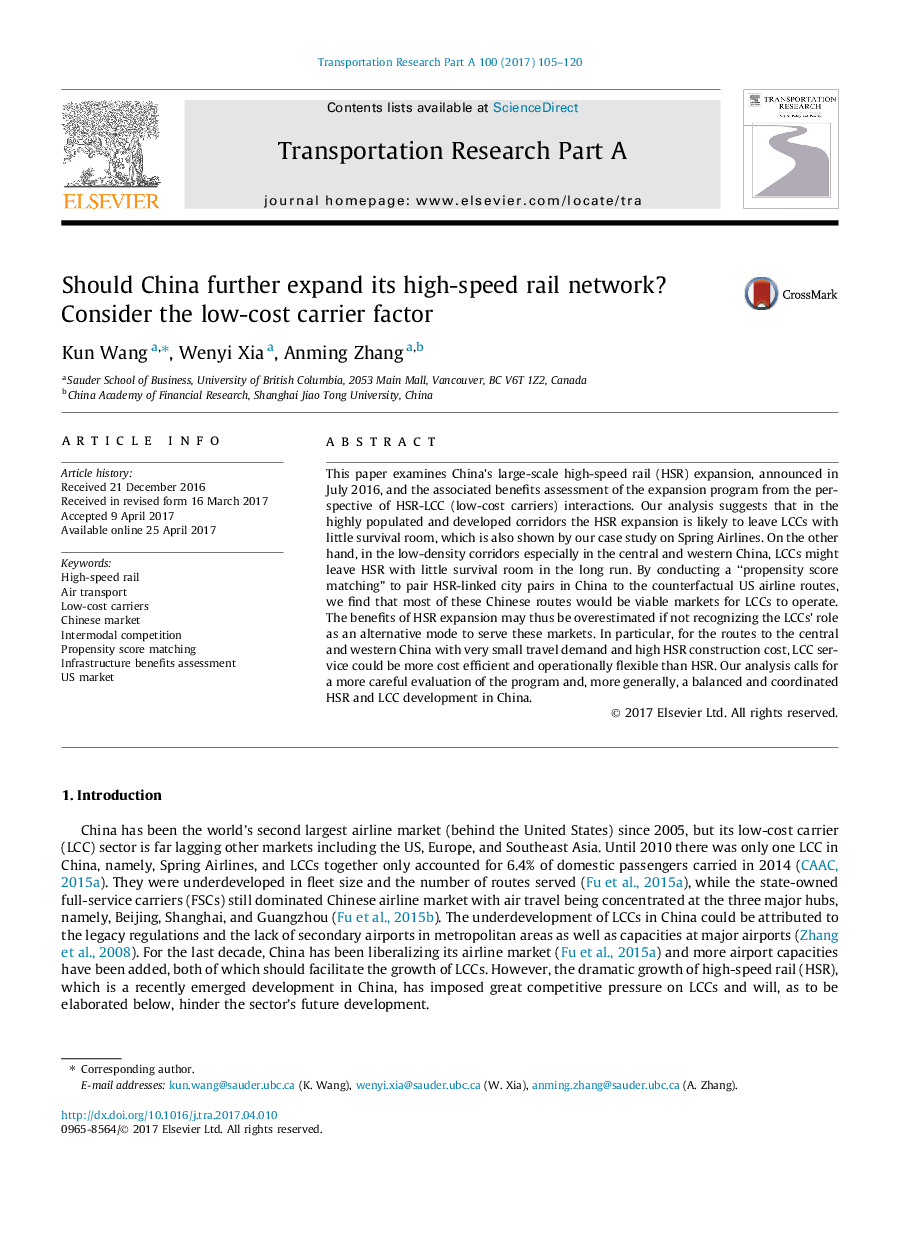ترجمه فارسی عنوان مقاله
آیا چین باید شبکه راه آهن سریع خود را گسترش دهد؟ فاکتور حامل کم هزینه را در نظر بگیرید
عنوان انگلیسی
Should China further expand its high-speed rail network? Consider the low-cost carrier factor
| کد مقاله | سال انتشار | تعداد صفحات مقاله انگلیسی |
|---|---|---|
| 101808 | 2017 | 16 صفحه PDF |
منبع

Publisher : Elsevier - Science Direct (الزویر - ساینس دایرکت)
Journal : Transportation Research Part A: Policy and Practice, Volume 100, June 2017, Pages 105-120
ترجمه کلمات کلیدی
راه آهن با سرعت بالا، حمل و نقل هوایی، حامل کم هزینه، بازار چینی، رقابت بین الملل، تطابق امتیاز تساهل، ارزیابی مزایای زیرساخت، بازار ایالات متحده،
کلمات کلیدی انگلیسی
High-speed rail; Air transport; Low-cost carriers; Chinese market; Intermodal competition; Propensity score matching; Infrastructure benefits assessment; US market;

